Menu
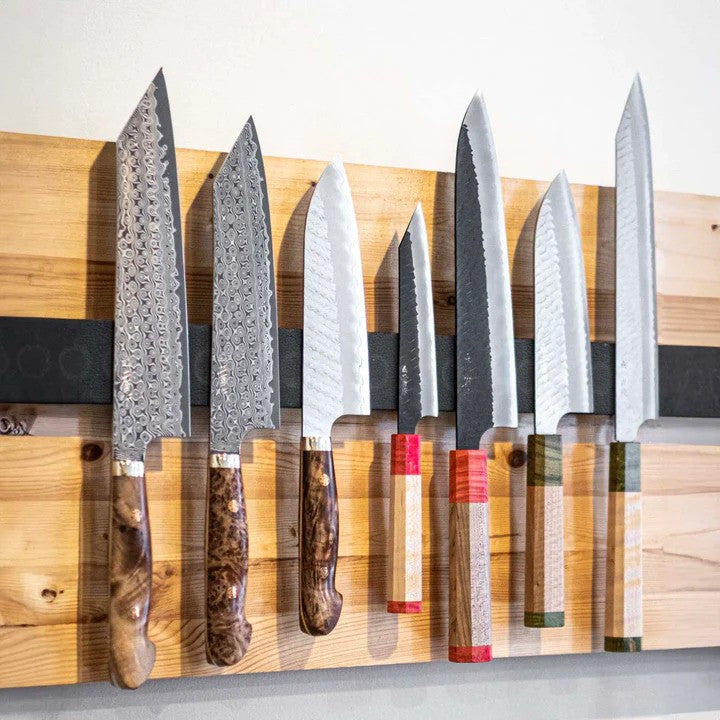
THE BLACKSMITH
NIGARA HAMONO
- Choosing a selection results in a full page refresh.


















Usually ready in 1 hour
| Blade Length | 145 mm |
| Total Length | 268 mm |
| Steel | R2 (SG2) |
| Handle | Stabilized Birch |
| Ferrule | G10 White Spacer |
| Rockwell | 63-65 |
| Height Spine to heel | 32 mm |
| Width at Spine | 1.8 mm |
| Weight | 78 grams |
The Blacksmith
Nigara Hamono is located in Hirosaki city, Aomori Prefecture, on the west coast of the very northern tip of the main island of Honshu, Japan. Their family has a 350 year old history of making knives and swords and more recently has expanded into structural steel beams for use in construction. Tsuyoshi Yoshizawa stands as the 8th generation smith in the lineage of blacksmiths at Nigara Hamono and creates knives with his younger brother and two other craftsmen.
Nigara Hamono knives are characterized by their signature tsuchime pattern, as well as play with stainless damascus. The Anmon line is inspired by the Anmon waterfalls, also located in Aomori prefecture, on the western most part, in Shirakami-Sanchi, designated as a natural World Heritage site. These knives stand out for their aesthetic appeal, thinness behind the edge, and functionality, given they make their steel in house, and work primarily with high powdered stainless steels. They produce uniquely versatile profiles, ranging from very flat “kiritsuke nakiris” to aggressively curved “kiritsuke gyutos”.
The Knife
The petty is the Japanese equivalent of the western style paring knife. They're usually a little longer and I could never go back after using one. The idea is all the on board work is done with your gyuto or chef knife and everything in hand is done with the petty. Not limited to capping strawberries, peeling, turning, or coring veggies, and smaller butchery tasks like chicken, small fish, or deboning a pork shoulder.
Follow these care recommendations for your Japanese knives to protect the edge and keep them sharp as long as possible:
All products are shipped within 24 hours. We offer same day shipping for products ordered by 12pm. Please allow 4-7 business days for your shipment to arrive with standard shipping. Expedited shipping options are also available at checkout.
We offer free shipping on orders within Canada over $150 CAD and free shipping on orders to the US over $200 USD.
Curbside pick-up is available at both our Hamilton and Etobicoke locations.
To make sure our customers are always satisfied, we offer full refunds on products for 14 days after receiving them. See our full return policy for details.
More questions? Check out our shipping policy, our return policy, or reach out to us directly.
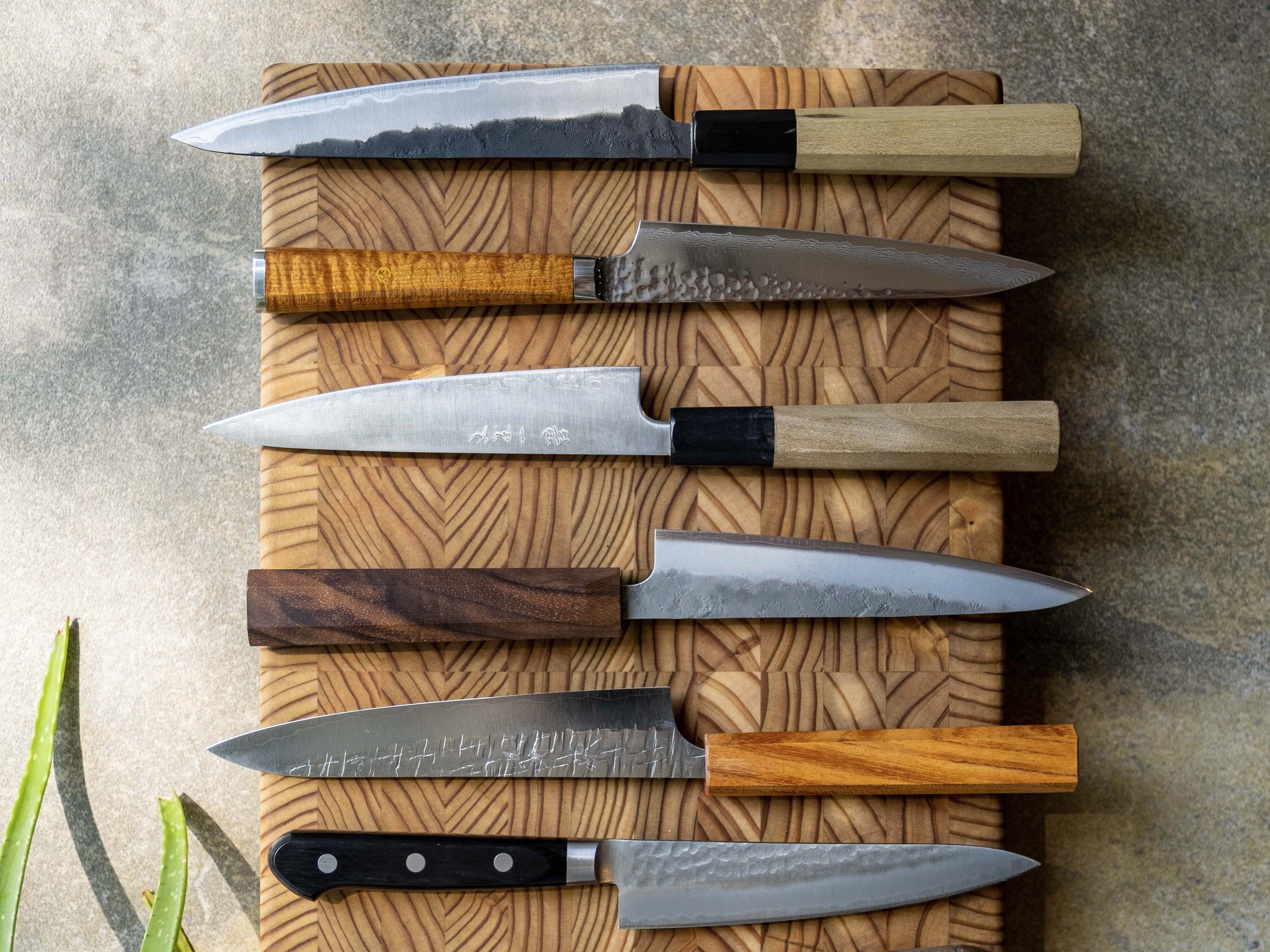
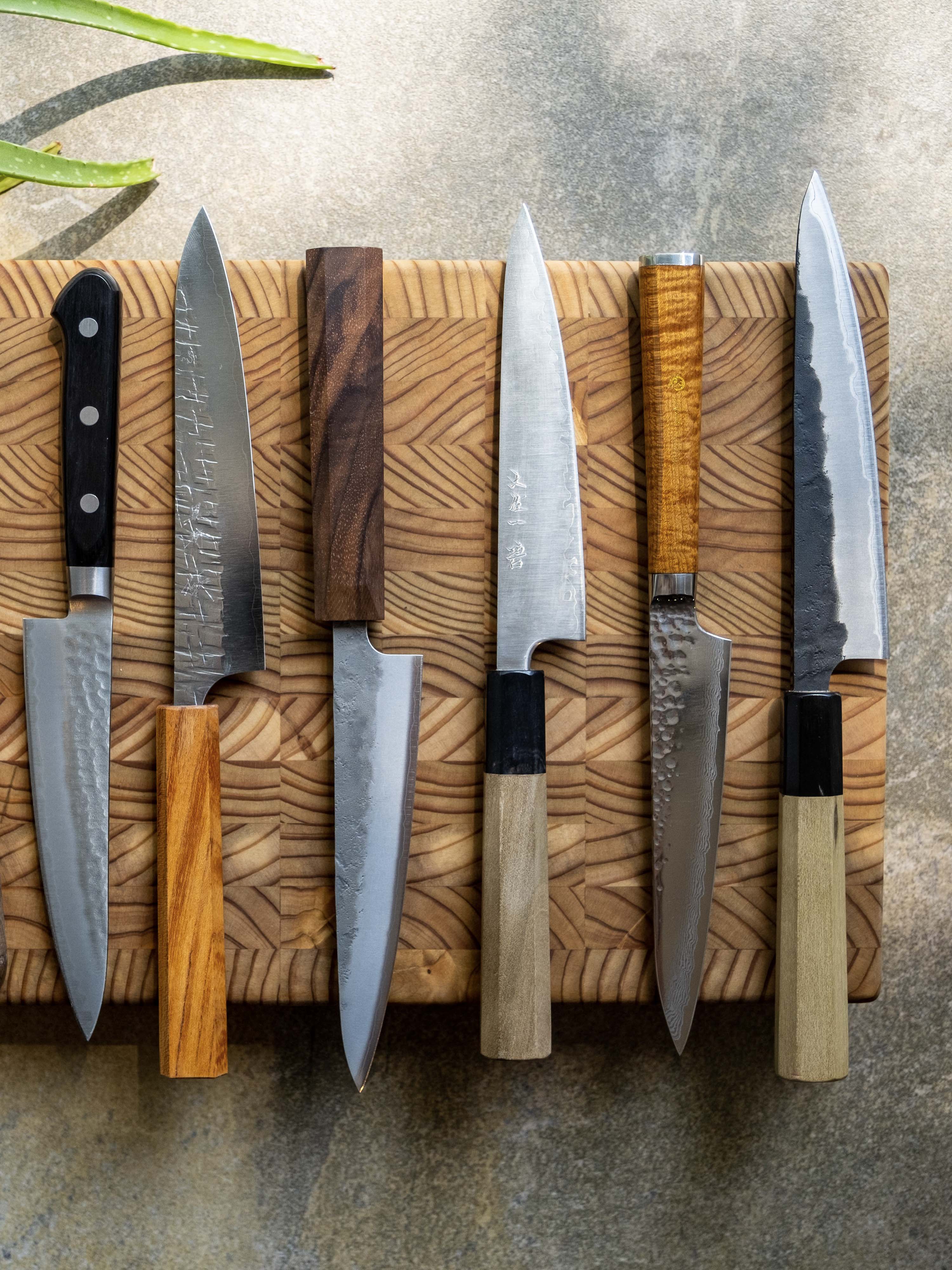
The petty knife is the Japanese equivalent of a utility knife. They typically range in size from 90 mm (3.5 inches) to 150 mm (6 inches) and have a slender, easy-to-control, short blade. They are a perfect accompaniment to a Gyuto, Santoku, or Bunka, as they facilitate smaller tasks. Shorter versions are great for in-hand use. Longer versions are great for fine chopping and managing small ingredients on a cutting board. They also handle butchery tasks with ease.
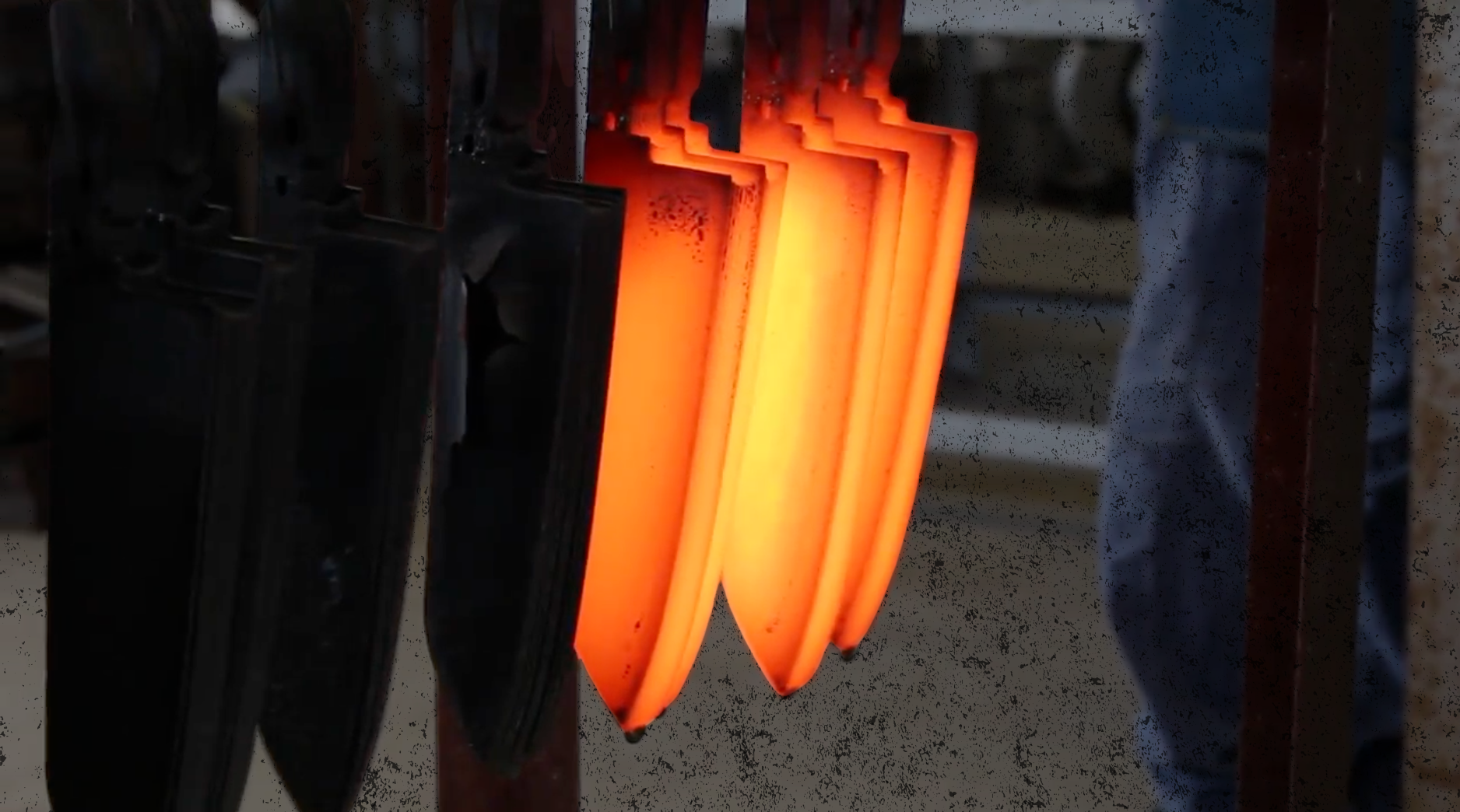
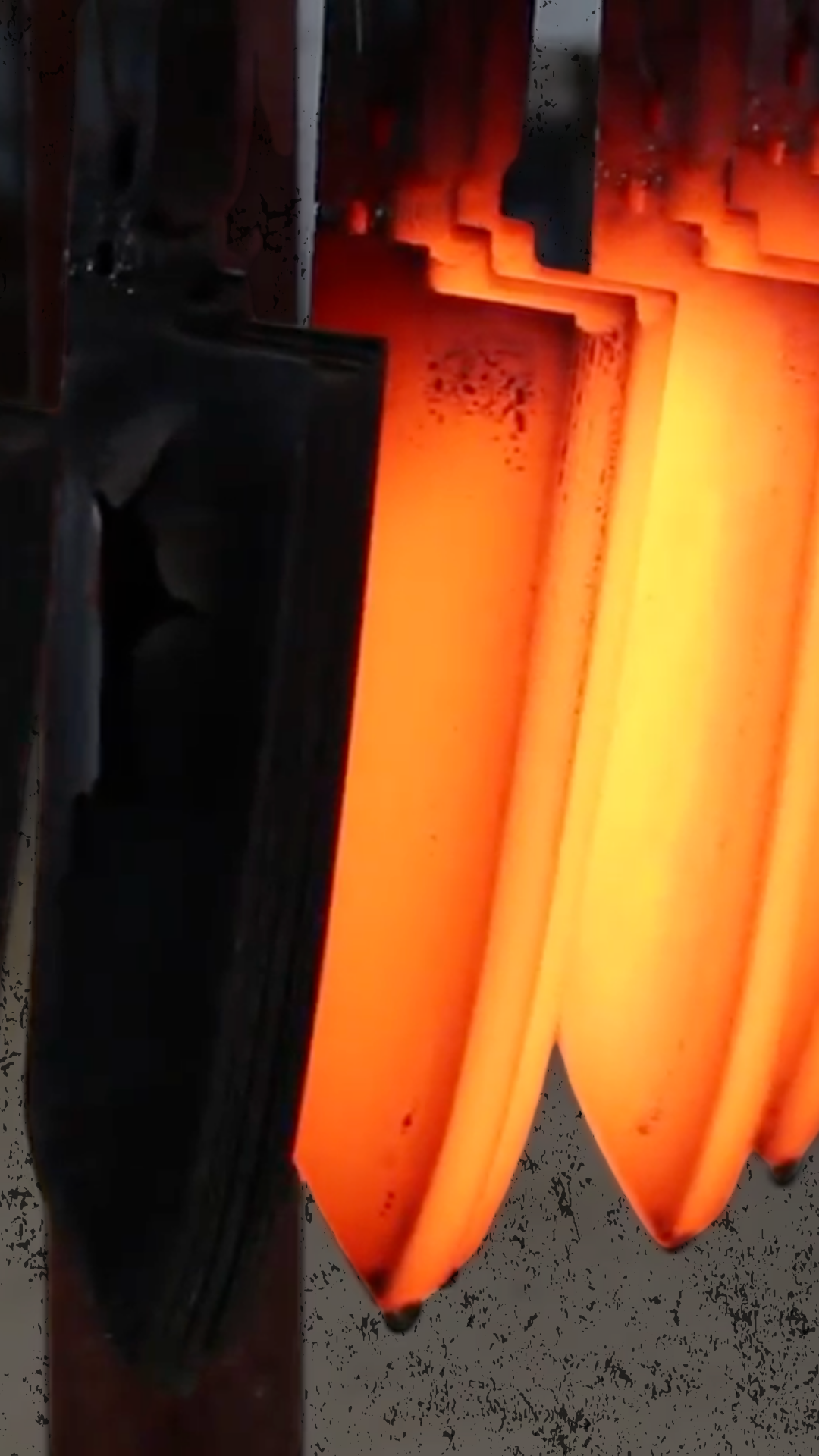
R2 and SG2 are technically different steel types, but are so similar we and many other retailers lump them into the same category. They are what’s known as a “quick powdered” stainless tool steel with incredible edge retention and corrosion resistance. Their one drawback is that their hardness can make them difficult to sharpen. It is not a steel we would recommend for those planning to thin and polish the bevels of their knives unless they are equipped with the proper tools (you will need a low grit stone in the #200 grit range).
Chemical Composition:
C 1.25-1.45% | Cr 14.0-16.0% | Mo 2.3-3.3% | V 1.8-2.2%
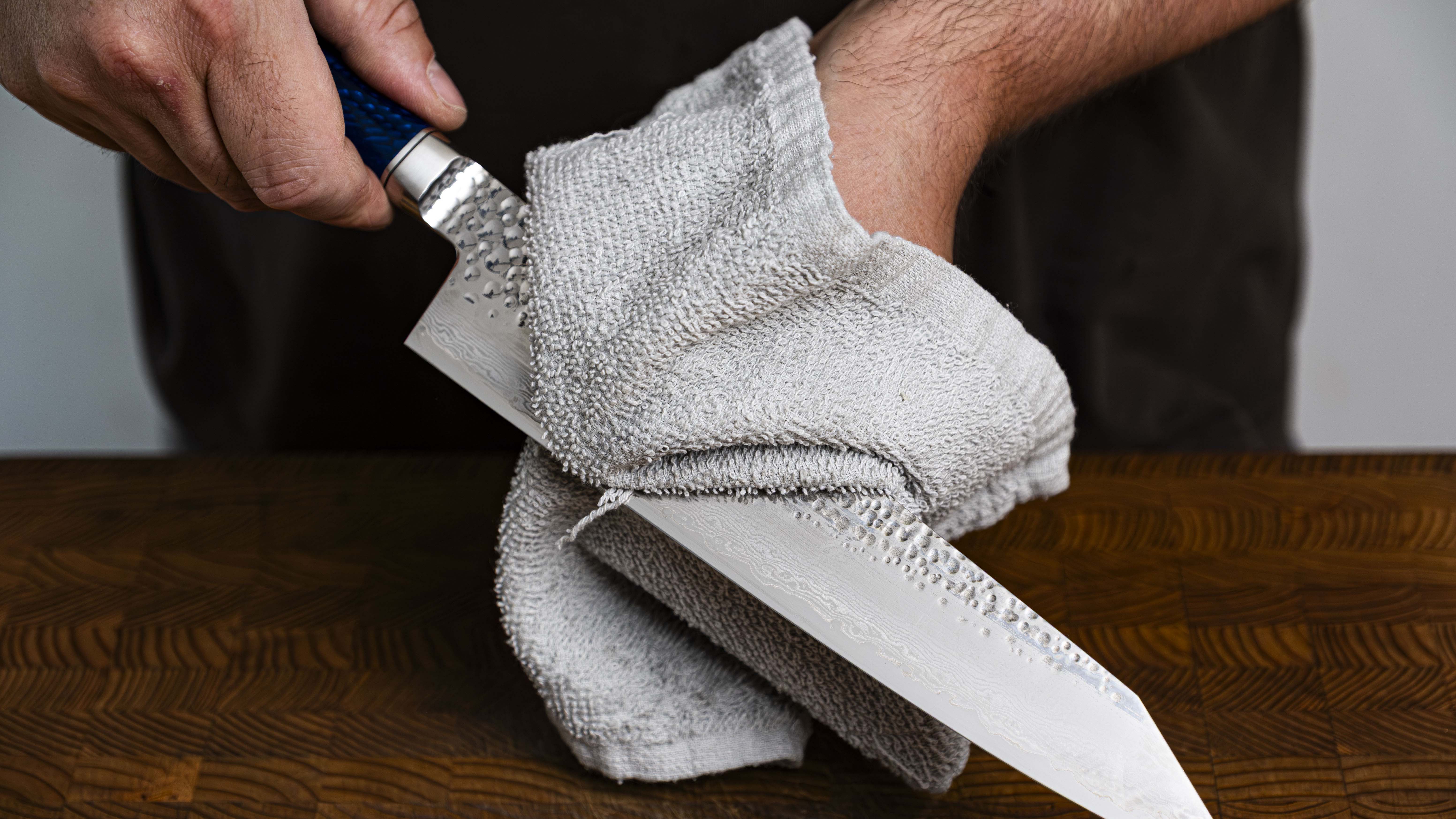
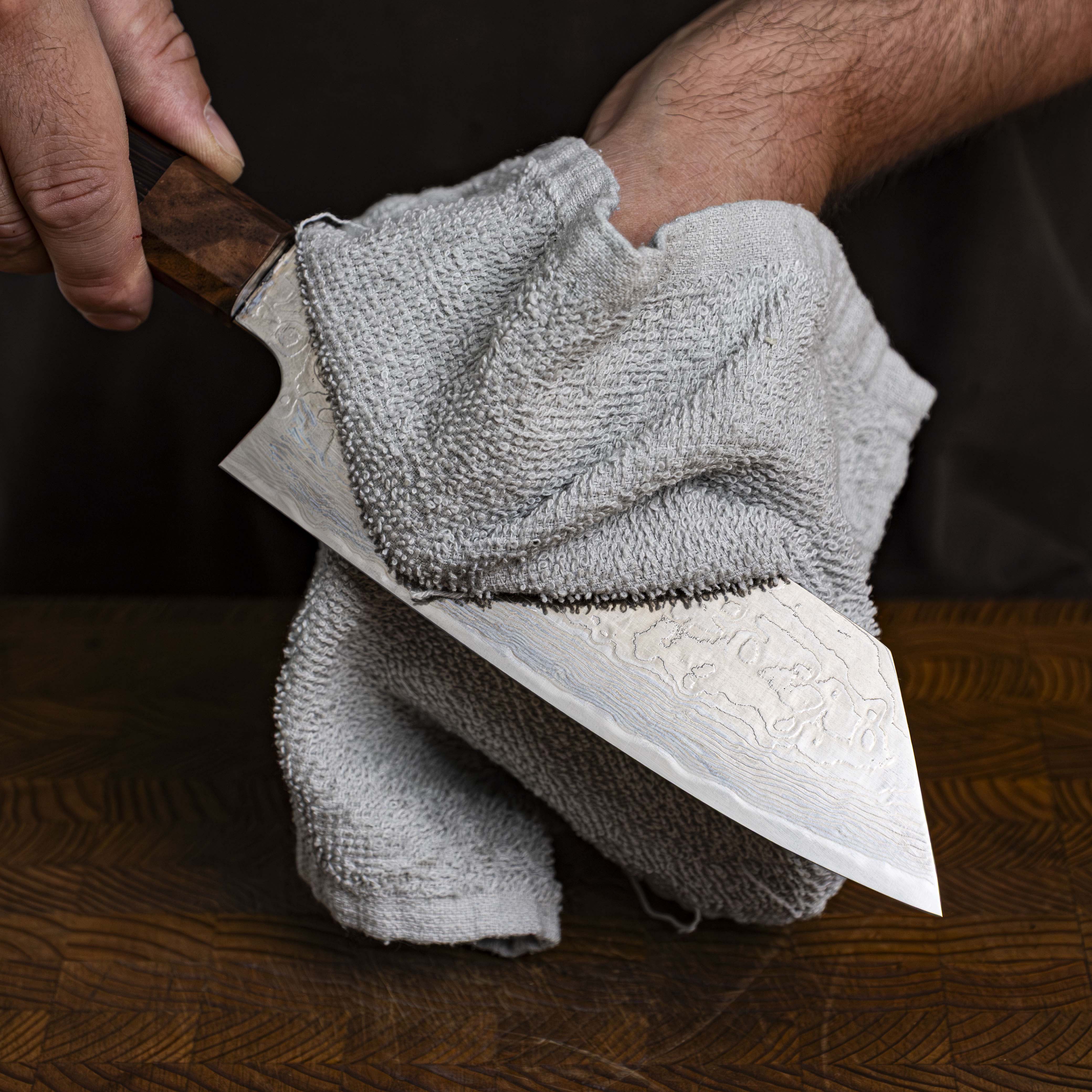
LOW MAINTENANCE
Stainless steel Japanese knives are made in a process called “Sanmai” or “Forge welding” where two softer layers of stainless steel are laminated around a harder core layer of stainless steel. All three of these layers are rust resistant and therefore are not susceptible to rust or discoloration. The softer outer layers of steel are used to make the knife more durable and flexible while the harder core layer is used to provide better edge retention to the blade.

Nigara Hamono is located in Hirosaki city, Aomori Prefecture, on the north west tip of the main island of Honshu, Japan. Their family has been making knives and swords for more than 350 years and more recently has expanded into structural steel beams for use in construction. Tsuyoshi Yoshizawa stands as the 8th generation smith in the lineage of blacksmiths at Nigara Hamono and creates knives with his younger brother and two other craftsmen.
